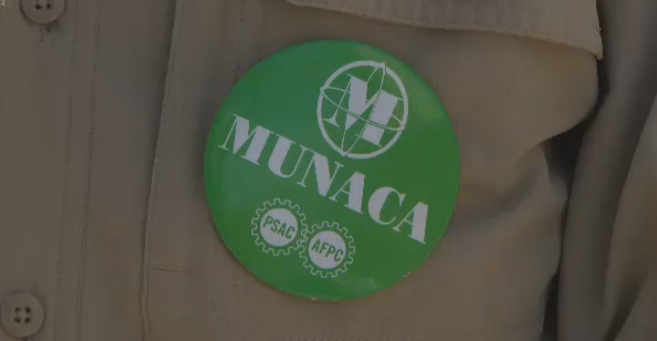McGill University’s Non-Academic Certified Association (MUNACA), a union that represents approximately 2,000 support staff employees, such as laboratory assistants and service representatives, will vote whether to go on strike on April 6. This is after McGill proposed measures that would decrease members’ pay increases that were negotiated in the previous collective agreement (CA). The previous CA expired in November 2018, and the two parties have yet to come to an agreement on a new one. The announcement to put a strike to vote comes amidst a strike by floor fellows, who are represented by the Association of McGill University Support Employees (AMUSE).
MUNACA members receive two forms of salary increases. The first increase compensates for inflation. The second, called a step increase, is when employees do not get their full salary when they first get the job, instead agreeing to receive a 2.97 per cent increase yearly, capped at 12 years—when employees would reach the maximum salary set by the CA. McGill has proposed a reduction of the step increase to 1.97 per cent and a lower top salary.
According to MUNACA representatives, the proposal would result in members earning less money per year, and step increases being eliminated for those who have reached the newly proposed top salary—even if they were scheduled to receive more according to the previous CA. McGill has stated that the pay decreases will allow the university to raise the base salary of lower-earning MUNACA members. Thomas Chalmers, MUNACA president, told The McGill Tribune that it was these measures that prompted MUNACA members to vote on a strike mandate.
“The disrespect has to stop,” Chalmers said. “If not, then the ultimate tool we have is a strike mandate [….] It’s a misnomer that unions want to go on strike: They don’t. It’s disruptive, it’s difficult, but at times, and this is one of them, it’s the right thing to do, to stand up and say you can’t treat us like shit.”
Nancy Crowe, MUNACA vice-president labour relations, believes McGill’s justification—compromising certain MUNACA members’ salary increases for lower-earners—is unfair, and ultimately unbelievable, considering how well some top McGill administrators are paid.
“There were decisions made to pay Suzanne [Fortier] and not others,” Crowe said. “Their priority becomes clear.” Fortier was paid over $860,000 dollars last year.
In a statement to The McGill Tribune, Frédérique Mazerolle, a McGill media relations officer, stated that the university believes its offer to MUNACA employees is fair and covers inflation by allowing for an average salary increase of 21 per cent over the 5 year period the new CA would cover.
“In January 2022, discussions continued, now in the presence of a conciliator [and] on March 10, 2022, McGill presented its latest offer,” Mazerolle wrote. “Despite this, on March 28, 2022, the McGill administration was informed that the union will seek a strike mandate from its members.”
Chalmers, however, believes that McGill’s proposed changes are dishonest and that the step increase is not a salary increase because employees will earn less than a full salary when they begin working.
“You don’t get paid the amount of the position right away, you have to go through these steps to get to the value of that position,” Chalmers said. “We understand that it takes time for people to learn the job […] but it’s disingenuous to say that you’re covering inflation.”
Floor fellows, represented by AMUSE, went on strike for similar reasons; however, AMUSE President James Newman cited that a lack of respect was also a central reason.
“What it came down to was an issue of respect. Throughout the negotiations there was a very strong lack of it,” Newman said. “You can see they’re doing the exact same thing to MUNACA.”









